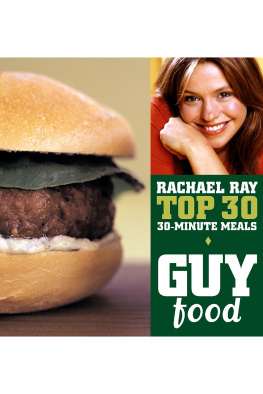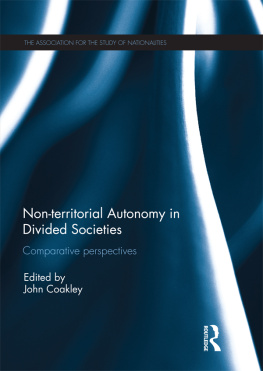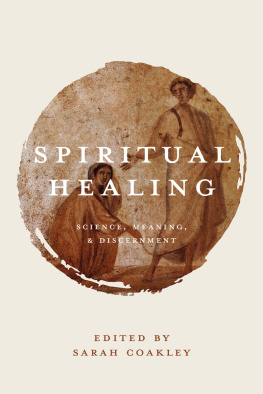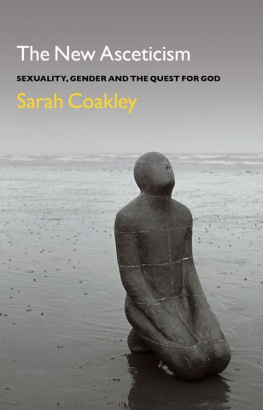Rachael Coakley - When Your Child Hurts
Here you can read online Rachael Coakley - When Your Child Hurts full text of the book (entire story) in english for free. Download pdf and epub, get meaning, cover and reviews about this ebook. year: 2016, publisher: Yale University Press, genre: Children. Description of the work, (preface) as well as reviews are available. Best literature library LitArk.com created for fans of good reading and offers a wide selection of genres:
Romance novel
Science fiction
Adventure
Detective
Science
History
Home and family
Prose
Art
Politics
Computer
Non-fiction
Religion
Business
Children
Humor
Choose a favorite category and find really read worthwhile books. Enjoy immersion in the world of imagination, feel the emotions of the characters or learn something new for yourself, make an fascinating discovery.

- Book:When Your Child Hurts
- Author:
- Publisher:Yale University Press
- Genre:
- Year:2016
- Rating:4 / 5
- Favourites:Add to favourites
- Your mark:
- 80
- 1
- 2
- 3
- 4
- 5
When Your Child Hurts: summary, description and annotation
We offer to read an annotation, description, summary or preface (depends on what the author of the book "When Your Child Hurts" wrote himself). If you haven't found the necessary information about the book — write in the comments, we will try to find it.
When Your Child Hurts — read online for free the complete book (whole text) full work
Below is the text of the book, divided by pages. System saving the place of the last page read, allows you to conveniently read the book "When Your Child Hurts" online for free, without having to search again every time where you left off. Put a bookmark, and you can go to the page where you finished reading at any time.
Font size:
Interval:
Bookmark:
Parents of kids with chronic pain, as much or more than other patient populations, want to know what concretely they can do to help their kids. With its focus on psychological techniques, teaching vignettes, and workbook strategies, this book is a unique resource.
Gerard A. Banez, Ph.D., Cleveland Clinic
What a truly wonderful book and a gift to families dealing with chronic pain and to the clinicians who care for them! Dr. Coakleys extensive knowledge base, deep clinical experience, and personal warmth and compassion are evident on every page.
Neil L. Schechter, M.D., Director, Chronic Pain Clinic, Boston Childrens Hospital
Dr. Coakleys book is a superb roadmap and guide for parents of children and adolescents with chronic pain. Her tone and message will resonate with parents from a very broad array of backgrounds and parenting styles. Simply the best book on this subject for parents.
Charles Berde, M.D., Ph.D., Chief of Pain Medicine, Boston Childrens Hospital
Dr. Coakley has developed a priceless resource that helps parents see the context of the whole child and the important systemsfamily, school, peersthat play crucial roles in childrens experiences of and recovery from chronic pain.
Deirdre Logan, Ph.D., Harvard Medical School
After reading this extraordinary and much-needed book by a competent and experienced clinician, parents will feel confident they have the skills, knowledge, and resources necessary to manage their childs chronic pain.
Grayson N. Holmbeck, Ph. D., Editor of Journal of Pediatric Psychology, Loyola University Chicago
When Your Child Hurts
Yale University Press Health & Wellness
A Yale University Press Health & Wellness book is an authoritative, accessible source of information on a health-related topic. It may provide guidance to help you lead a healthy life, examine your treatment options for a specific condition or disease, situate a healthcare issue in the context of your life as a whole, or address questions or concerns that linger after visits to your healthcare provider.
When Your Child Hurts
Effective Strategies to Increase Comfort, Reduce Stress, and Break the Cycle of Chronic Pain
RACHAEL COAKLEY, Ph.D.
Yale UNIVERSITY PRESS
New Haven and London
The information and suggestions contained in this book are not intended to replace the services of your physician or caregiver. Because each person and each medical situation is unique, you should consult your own physician to get answers to your personal questions, to evaluate any symptoms you may have, or to receive suggestions for appropriate medications.
The author has attempted to make this book as accurate and up to date as possible, but it may nevertheless contain errors, omissions, or material that is out of date at the time you read it. Neither the author nor the publisher has any legal responsibility or liability for errors, omissions, out-of-date material, or the readers application of the medical information or advice contained in this book.
Patient stories in this book are typified examples based on compilations of numerous cases. Any resemblance to actual persons, living or dead, or actual events is purely coincidental.
Published on the foundation established in memory of William Chauncey Williams of the Class of 1822, Yale Medical School, and of William Cook Williams of the Class of 1850, Yale Medical School.
Copyright 2016 by Rachael Coakley, Ph.D.
All rights reserved.
This book may not be reproduced, in whole or in part, including illustrations, in any form (beyond that copying permitted by Sections 107 and 108 of the U.S. Copyright Law and except by reviewers for the public press), without written permission from the publishers.
Yale University Press books may be purchased in quantity for educational, business, or promotional use. For information, please e-mail (U.K. office).
Set in Simoncini Garamond type by Newgen North America.
Printed in the United States of America.
ISBN: 978-0-300-20465-0 (paperback; alk. paper)
Library of Congress Control Number 2015941167
A catalogue record for this book is available from the British Library.
This paper meets the requirements of ANSI/NISO Z39.481992 (Permanence of Paper).
10 9 8 7 6 5 4 3 2 1
In my office at the Pain Treatment Service at Boston Childrens Hospital, my beige, hospital-issued desk is next to the big blue reclining chair where my young patients sit for therapy. One day, I placed on the side of my desk a small white magnet with a simple message from the famous American composer John Cage. It reads, Begin Anywhere.
This gave several of my patients the idea to post their own inspirational quotations on the side of my desk for everyone to see. Some quotations are from songs, others are from books, and some are just sayings kids have heard along the way. All include words of resilience, strength, and fortitude. For my new patients and their parents, who are frequently struggling the most, the quotations from others who have walked in their shoes are a beacon of hope.
At his very first appointment, Collin, an eight-year-old boy with chronic abdominal pain, carefully studied the side of my desk and then said, Ive got one, too. Many weeks later, when Collin and his family had a new arsenal of strategies for managing his pain, he took a notecard from my desk, grabbed a chunky marker, and wrote: It always seems impossible until its done.
Nelson Mandela.
Contents
Preface
Mondays are my new clinic day. Each and every Monday I meet two new families for the first time. The stories they tell have different beginnings and middles, but for each the end is the same. My child has pain and nothing seems to help, parents tell me when I begin my evaluation.
I look at the young person coiled in the big blue recliner chair in my office, and I look at the parents who sit upright on the edges of their seats. For a moment I put myself in their shoes. I recognize that the journey up to this point has often been long and wrought with frustration, heartache, and physical suffering. I understand that families do not come to the multidisciplinary pain clinic where I work without this journey, and I know that hopes are high.
I begin slowly. Pain is a complicated problem, I say to the parents. I wait until I can catch the eye of the young person who sits in front of me, and I continue. You are here today because youve already met with many smart doctors, youve already tried medications, youve waited, youve rested, youve done what doctors have told you to do, and you are still hurting. I take a slow deep breath and go on, Your pain has probably caused a lot of problems in your life. Most people find that pain interferes with school, sleep, friends, activities, concentration, memory, and mood. It also of course causes a lot of worry for you and your parents. I pause. The next thing I have to say is trickier, so I take my time. I have to explain carefully my role within the pain clinic because I am a psychologist, and many people bristle when they are referred to a psychologist for what is obviously a physical problem. My job here today is to understand how pain has interfered with your life, I say. Im not trying to evaluate whether or not your pain is real; I know its real. I know youre hurting.
I spend a lot of time with my Monday families. I listen to the stories that they tell when they are together as a family, I listen to what the child shares with me when we meet alone, and then I listen to what parents confide when their child is out of the room and they can finally let their guard down. I do a lot of listening on Mondays. I have listened to more than a thousand families tell their storiesstories fraught with frustration, concern, and multiple challenges.
Next pageFont size:
Interval:
Bookmark:
Similar books «When Your Child Hurts»
Look at similar books to When Your Child Hurts. We have selected literature similar in name and meaning in the hope of providing readers with more options to find new, interesting, not yet read works.
Discussion, reviews of the book When Your Child Hurts and just readers' own opinions. Leave your comments, write what you think about the work, its meaning or the main characters. Specify what exactly you liked and what you didn't like, and why you think so.






